Doctors from the People's Hospital in Muchuan County, southwest China's Sichuan Province, performed an operation to give an artificial beak to a crested ibis (Nipponia Nippon), a rare and endangered bird.
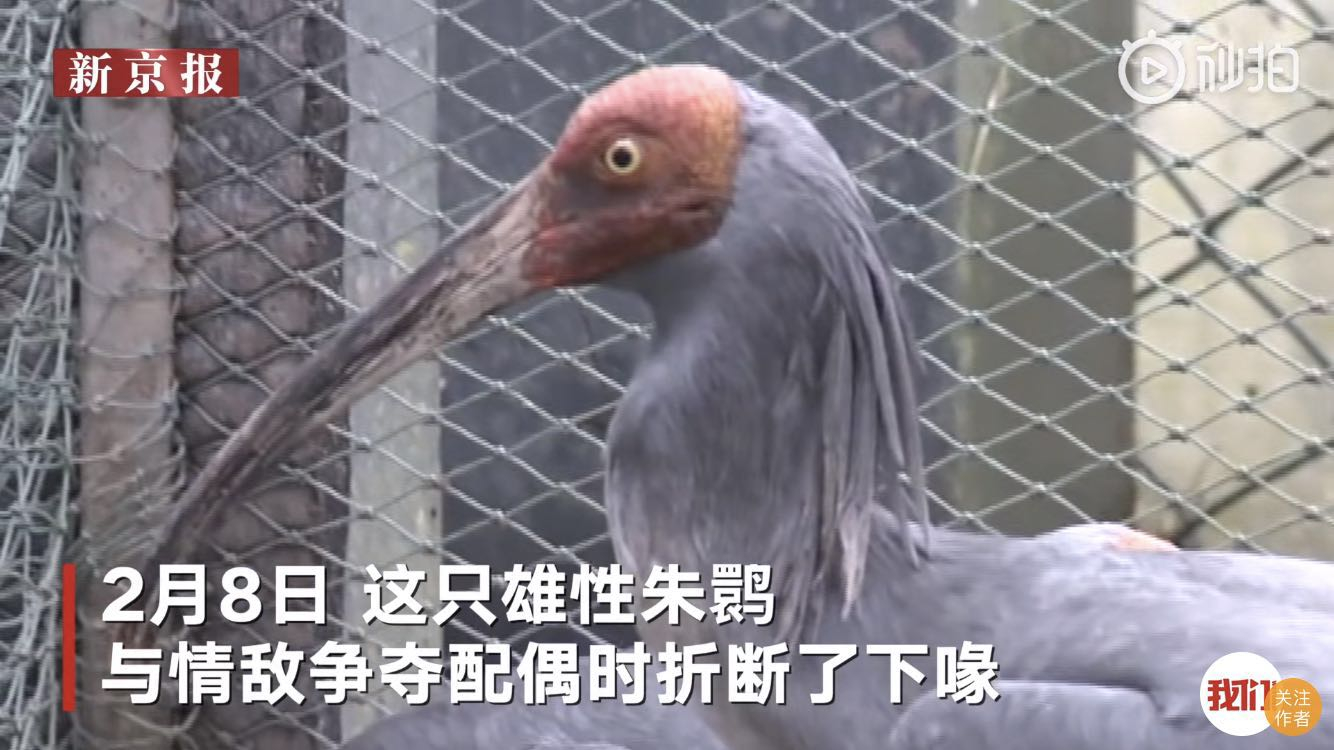
The male ibis broke its beak in a fight with a rival. /The Beijing News
The male ibis broke its beak in a fight with a rival. /The Beijing News
On February 8, a male ibis broke is beak during a fierce battle fighting for the female ibis attention. The necrotic wound was long as eight centimeters from the front of its lower beak and it had to be cut off. Without it, the lower beak lacks support and the bird was unable to eat on its own or comb its feathers, affecting his courtship signal.
Giving him an artificial beak became the best solution to the bird's problem as it could not bear the weight of titanium alloy, which was used on a red-crowned crane at the same occasion.
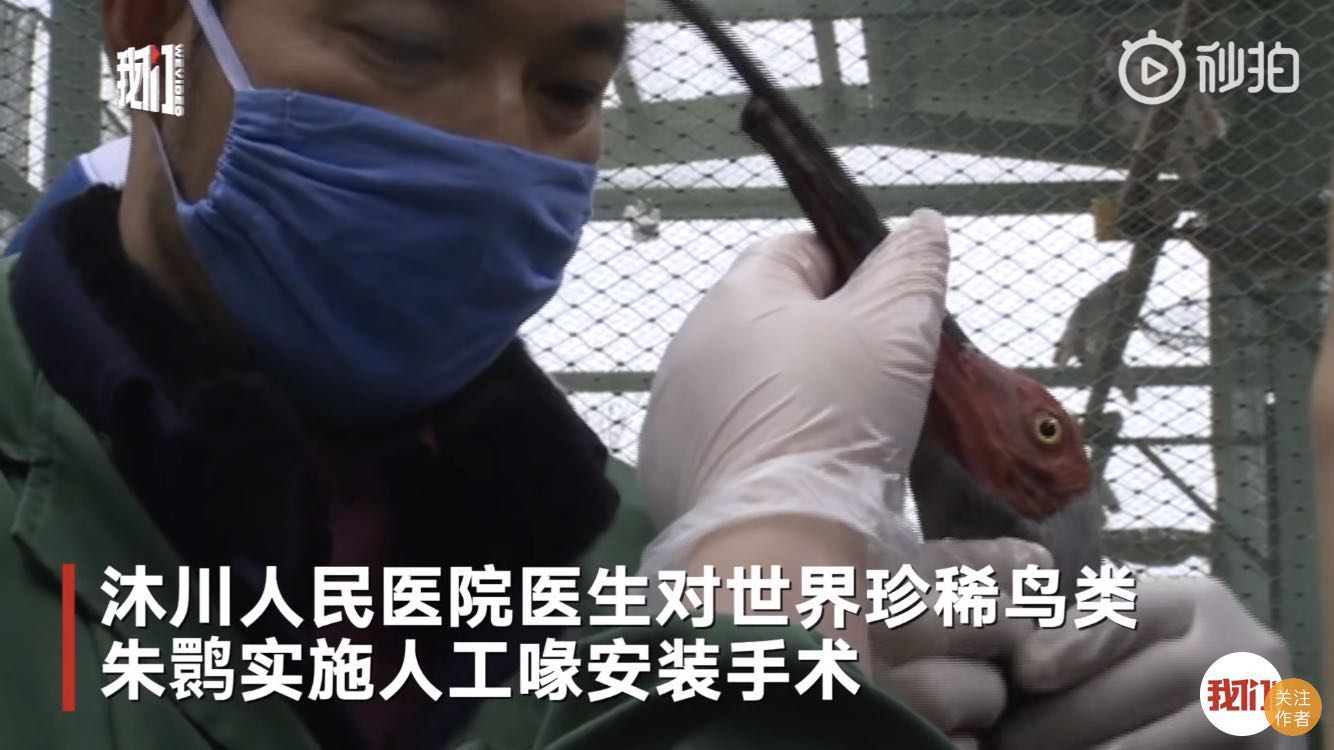
The surgical operation was given to this endangered bird at the People's Hospital in Muchuan, southwest China's Sichuan Province. /The Beijing News
The surgical operation was given to this endangered bird at the People's Hospital in Muchuan, southwest China's Sichuan Province. /The Beijing News
Through comparison, it was discovered that PEEK material for human bones was the most suitable, for it weighs only a quarter of titanium alloy and has a texture that is closer to that of a real beak, being an overall better match.
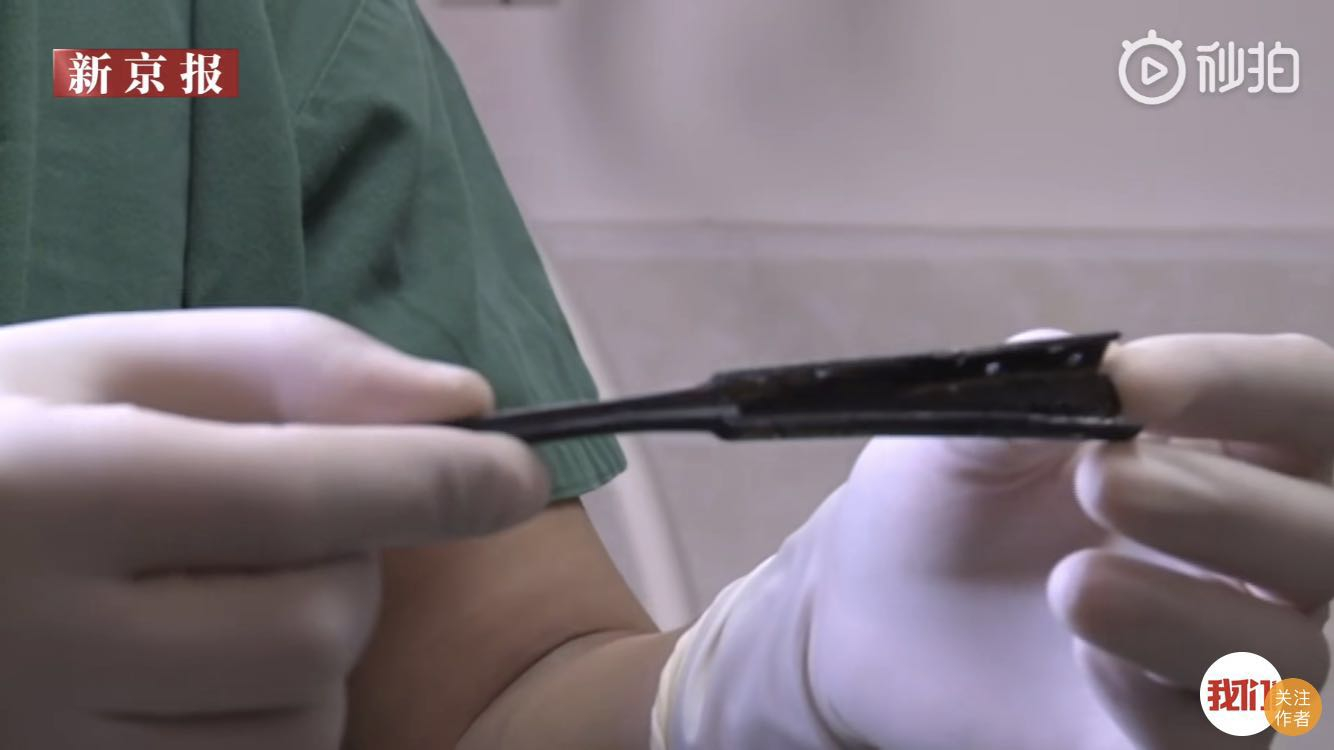
The new beak was 3D-printed with materials weighing the same as the real beak. /The Beijing News
The new beak was 3D-printed with materials weighing the same as the real beak. /The Beijing News
The non-toxic, corrosion-resistant and high-temperature resistant material also shows good stress resistance and hydrolytic stability.
"No matter how difficult it is," said Wu Yongzhong, staff member at a breeding center in Muchuan, "we need to find a way."
After six mold tests, the 3D-printed PEEK artificial beak finally arrived in Muchuan. The next day, the bird underwent surgery for less than an hour. The doctors gave the animal an anaesthetic and cleaned the wound before bonding the cross section. They also drilled and threaded, polished and adjusted the new body part.
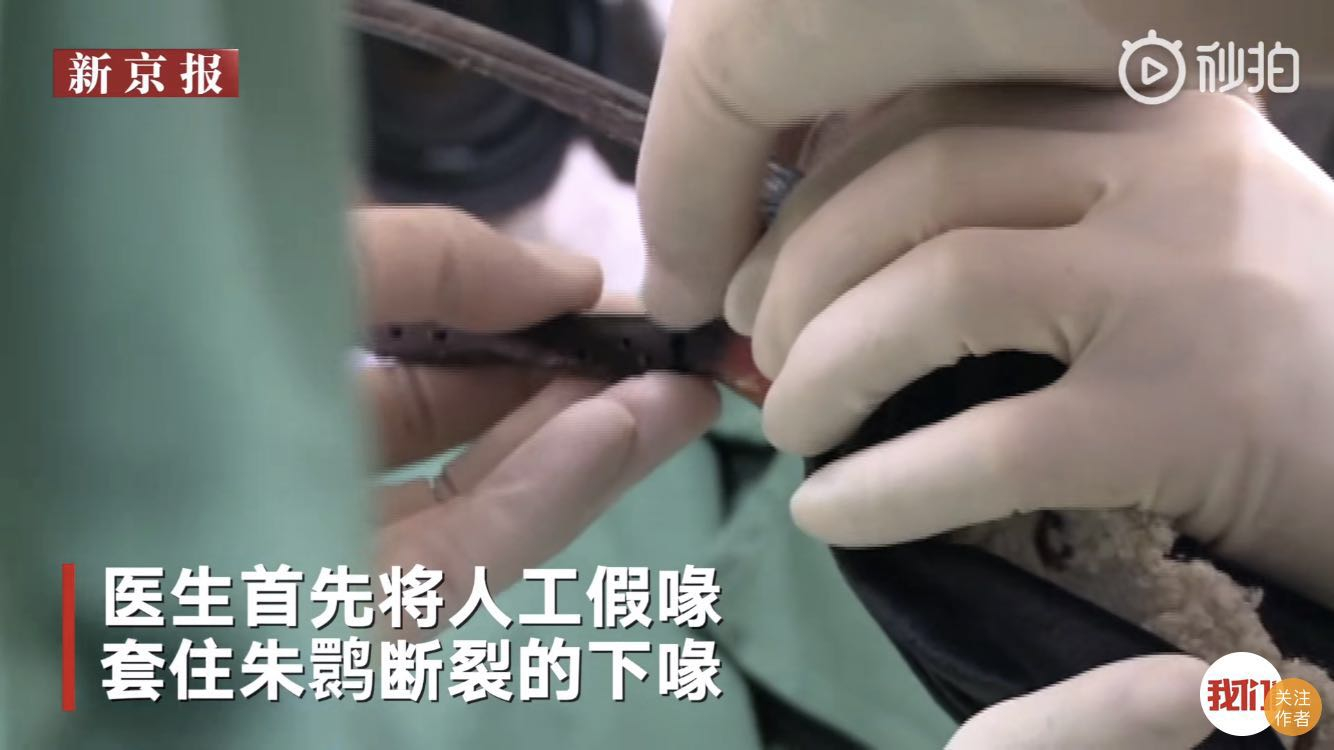
The doctors first took the artificial beak to cover the broken part. /The Beijing News
The doctors first took the artificial beak to cover the broken part. /The Beijing News
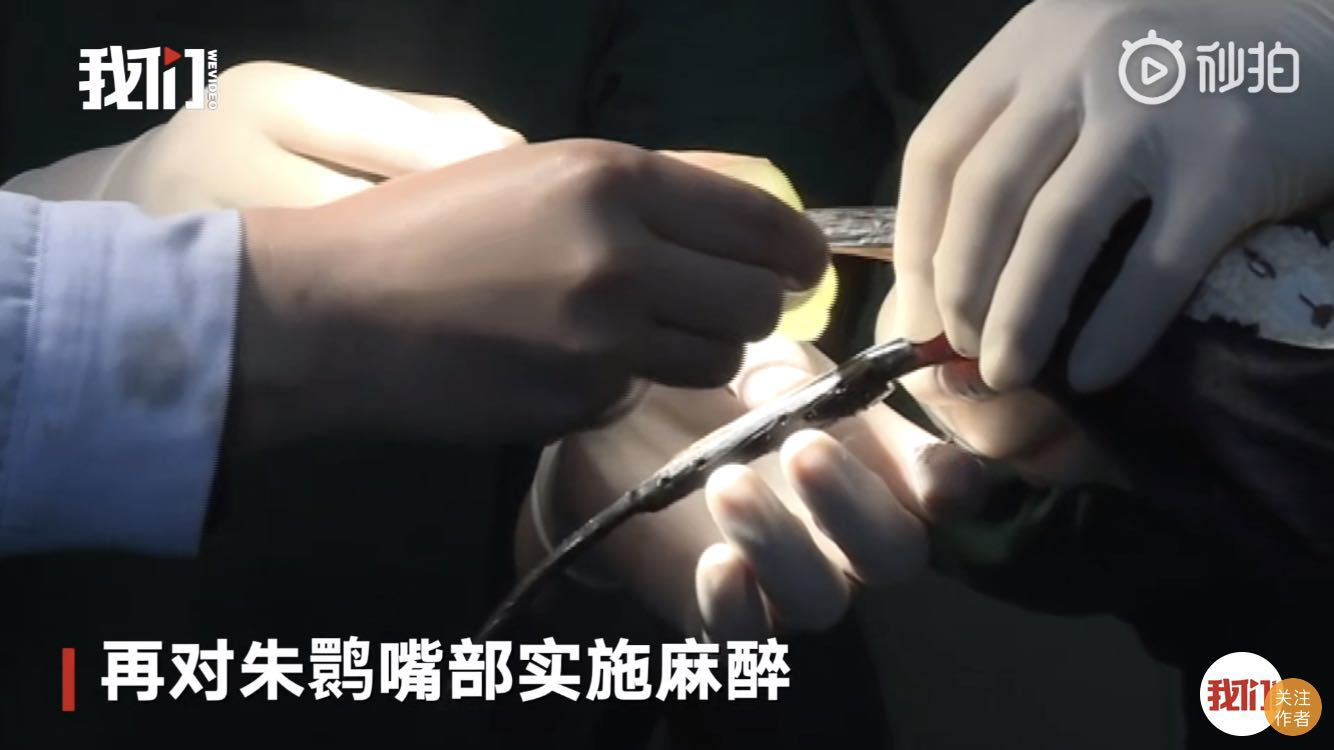
Then a certain amount of anaesthetic was applied. /The Beijing News
Then a certain amount of anaesthetic was applied. /The Beijing News
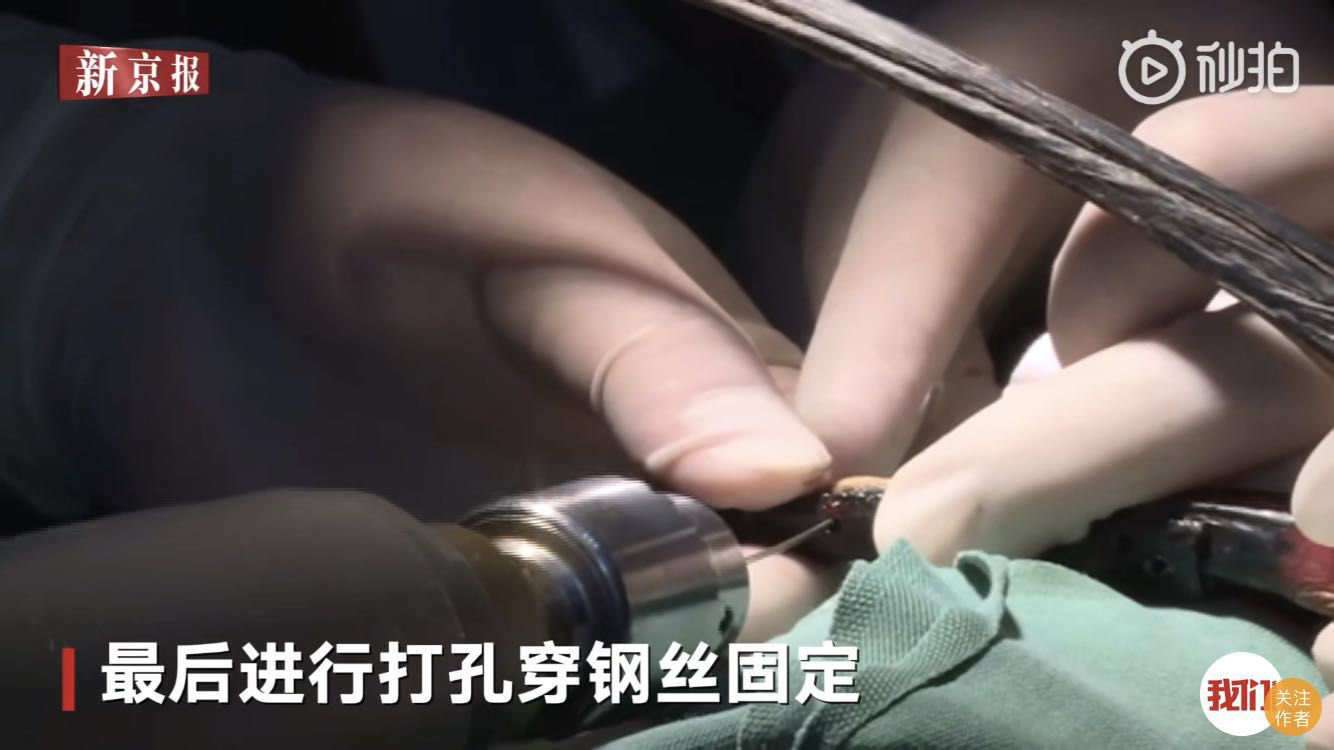
The final step was to make threads and fastened the wires. /The Beijing News
The final step was to make threads and fastened the wires. /The Beijing News
The ibis was even given a black mask to prevent it from getting frightened, and slowly woke up to its "new tool."
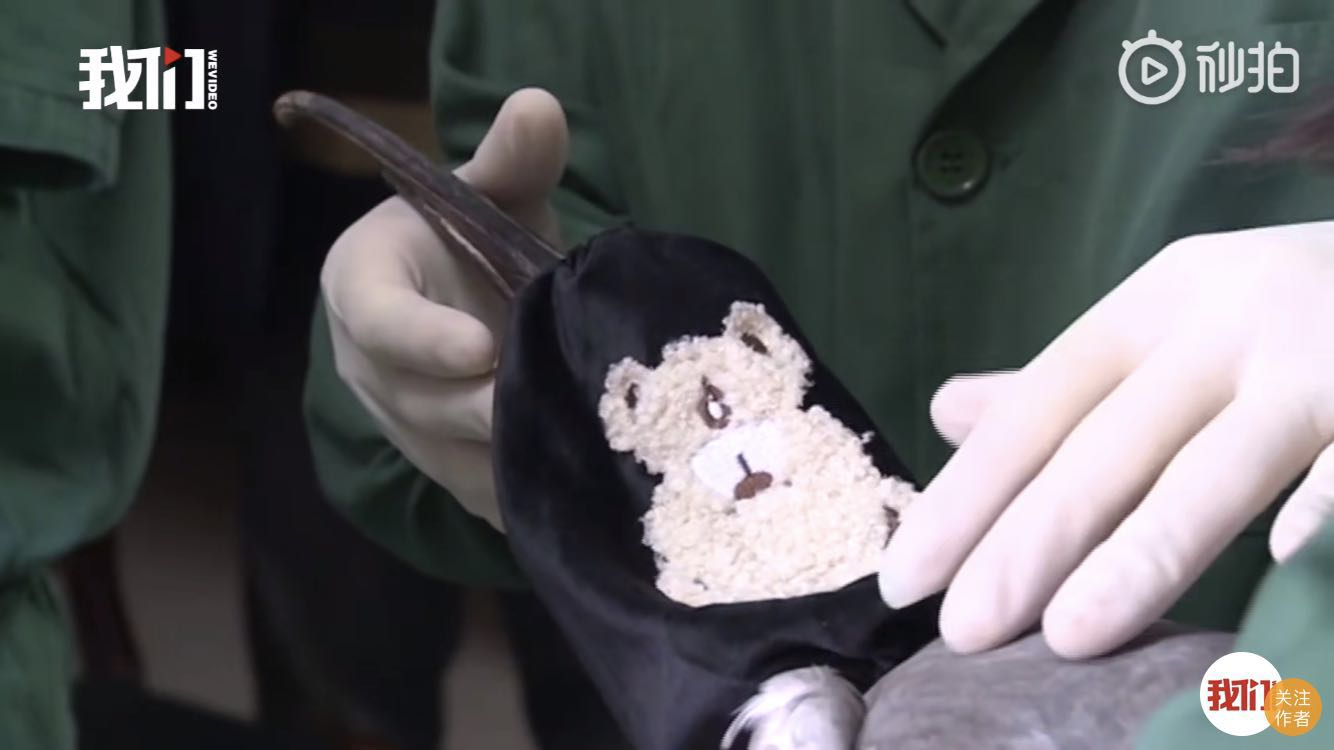
A black mask was given to the ibis in case it got frightened. /The Beijing News
A black mask was given to the ibis in case it got frightened. /The Beijing News
This was the first time the hospital used an artificial beak. Because the succulent membrane in the middle of the ibis' jaws is very thin and covered with capillaries, the procedure is very difficult. As a result, doctors needed to be exceptionally careful.
Equivalent to a human joint replacement, it needs fixed surgery and a recovery period. The new beak installed weighs around six grams.
Although the operation was highly successful, it will take some time for the ibis to recover and is currently under observation.
The video has gone viral on China's social media platform. Some netizens joked that the bird must have fallen deeply in love with the female ibis to have even broken its beak.

"Now, its rival will get really scared", said one Weibo user. /Screenshot from Weibo
"Now, its rival will get really scared", said one Weibo user. /Screenshot from Weibo

"It must love the female ibis so much," commented another user. /Screenshot from Weibo
"It must love the female ibis so much," commented another user. /Screenshot from Weibo

"The black mask to cover the eyes was too cute," another said. /Screenshot from Weibo
"The black mask to cover the eyes was too cute," another said. /Screenshot from Weibo
The crested ibis is the nation's first-class protected animal and it is globally endangered. According to thecover.cn, there are more than 4,000 of them in China and 68 reside in the breeding center in Muchuan, Sichuan, where it can be monitored and taken care of.